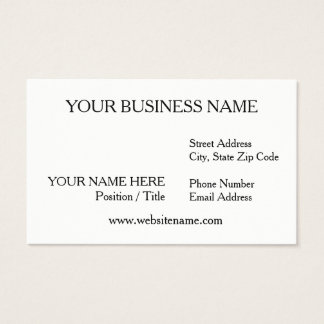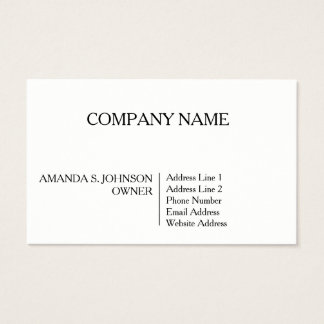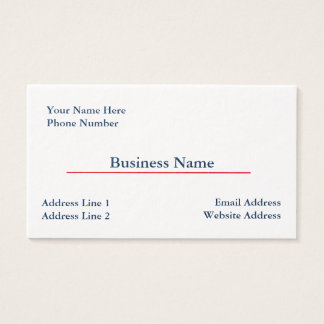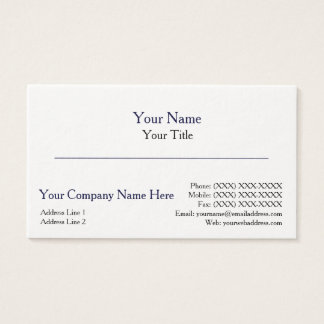Companies receive a lot of resume, and deciding which candidates to bring in for an in-person interview can be a hard decision. For many hiring managers, it all starts with what’s on the applicant’s resume. What element makes a resume stand out, allowing that person to move on to the next round of the hiring process?
To find out more, we asked Young Entrepreneur Council (YEC) members the following question:
Q. What’s one thing a resume must have in order for you to invite the candidate in for an in-person interview?
1. Proof

I always look for proof. If a resume tells me that someone is an expert in AI, I ask myself: “Where’s the evidence?” In order to take a resume seriously, I need concrete evidence for every skill listed, whether it’s a project they built, code they wrote, or even strong references. —Frederik Bussler, AngelStarter
2. Effort

You can tell the difference between a candidate who typed up their resume in five minutes, versus one who spent hours crafting an informative and impressive resume prior to applying. People who put effort into writing their resume instantly win favor in my book. —Blair Williams, MemberPress
3. Accomplishments

Instead of just listing their skills, I look for candidates who list their accomplishments on their resume. For instance, instead of only listing “social media marketing” as a skill, I like to see an accomplishment related to it, such as “I grew the company’s Facebook group by attracting 2,000 new members in three months.” Anyone can list a skill on their resume, but the results are even better. —Stephanie Wells, Formidable Forms
4. Soft Skills

If a candidate doesn’t take the time to tell me how they work well with others, communicate, listen, etc., then it’s not someone I’m keen on interviewing. Businesses require soft skills just as much as technical skills, if not more. You can always build onto your technical expertise, but behavioral habits are much more difficult to make and break. —Jared Atchison, WPForms
5. Track record of success

A resume must show qualitative or quantitative results you have accomplished for other employers. This shows a track record of meeting goals and achieving objectives for companies or organizations you’ve worked for. —Serenity Gibbons, NAACP
6. Character

Our business is the sum of everyone who works for us. We are all humans with interests, personalities, and families. When I am looking through resumes, I try to pick people who demonstrate that they are charismatic and have character through their writing. These people are usually creative and talented, making them assets for my company. —Syed Balkhi, WPBeginner
7. Good writing

I look for proper grammar, active voice, and strong writing when reviewing and sorting through resumes. If I notice typos, grammatical errors, or other syntax issues, then I will put the resume into the “trash pile.” If a candidate can’t take a minute to proofread their resume, then there’s no reason why I should move them onto the next round. —Kristin Kimberly Marquet, Marquet Media, LLC
8. Applicable talent stack

The resumes that I find the most appealing are the ones that demonstrate a combination of relevant skills and experiences. Instead of just focusing on one or two skills, a candidate with a “talent stack” of five or so key strengths is an extremely valuable asset to any company. These individuals are extremely versatile workers and have a clear desire to grow with their companies. —Bryce Welker, The Big 4 Accounting Firms
9. Loyalty

I want to see a few work experiences that last more than a year from good companies that we also resonate with or respect. I also want to see character references from these companies. If you have character references, then you won my heart! —Daisy Jing, Banish
10. Tailored content

One thing that’s important to get an interview here is a resume that has some tailored content. If you’re not able to speak to how your experience makes you a fit for the company and position, then it’s not likely going to work. A resume should be a story about the candidate, but that story should be tailored to the job and company. —Baruch Labunski, Rank Secure
11. Authenticity

So many resumes are stuffed with boasting capabilities and unnecessary technical jargon. It makes a huge difference to receive a resume where the applicant clearly outlines their experience with authentic descriptions. This means they took the time to reflect, understand their input in the company, and stayed humble along the journey. Being genuine showcases their honesty. —Dalip Jaggi, Devise Interactive
12. The right keywords

Employers want to know ahead of time that you are really qualified for the job. With so many tasks to complete in a day, hiring managers typically skim through resumes to ID certain keywords that match the job. The key to a strong resume is to make a list of skills required for the position that matches your experience. Choose keywords with the strongest match to be used throughout your resume. —Blair Thomas, eMerchantBroker
13. Emphasis on results over responsibilities

All of our best hires have come from applicants who on their resume (and in-person) put an emphasis on the results they’ve gotten in their roles, not the responsibilities they had. If they don’t have this on their resume, we don’t disqualify them but ask about it in the interview. If they start going around it and saying “We achieved X,” we dig deeper into their role in achieving these results. —Karl Kangur, Above House
14. Transferable skills

When candidates take the time to make their previous work experience applicable to the job, that shows that they understand the job they’re applying to and understand transferable skills. A list of unrelated skills on a resume makes it seem like the resume was not written for the specific job description and just printed off and handed out to many—which can be a red flag. —Diego Orjuela, Cables & Sensors
15. Positivity

The second I look at an application and see a potential new hire trash-talking their boss, I instantly put down the resume. Negative emotions breed negativity in others, and that’s not something you want floating around your business. I look for people who are positive and passionate. —David Henzel, LTVPlus
16. Relevance
 Hiring managers primarily look for one thing on resumes: relevance. This includes experience that is relevant to the job description and special skills that are relevant to the preferred qualifications. A candidate whose resume is clear, concise, and that draws these direct parallels will always make the short list and be invited to interview. —Jackie Ducci, Ducci & Associates
Hiring managers primarily look for one thing on resumes: relevance. This includes experience that is relevant to the job description and special skills that are relevant to the preferred qualifications. A candidate whose resume is clear, concise, and that draws these direct parallels will always make the short list and be invited to interview. —Jackie Ducci, Ducci & Associates17. Alignment of core values
 A candidate with strong potential will study our website and incorporate our core values somewhere in their resume or cover letter. Even if a potential employee doesn’t directly address the values, we look for words and indications that show an alignment to our values, such as proactiveness or positivity. —Beck Bamberger, BAM Communications
A candidate with strong potential will study our website and incorporate our core values somewhere in their resume or cover letter. Even if a potential employee doesn’t directly address the values, we look for words and indications that show an alignment to our values, such as proactiveness or positivity. —Beck Bamberger, BAM Communications18. Quality references
 If a job candidate is willing to put high-level references down, that tells me they worked hard at their previous job and are proud to have others speak on their behalf. If what I see is a collection of references from 10 years ago, red flags go up. —Colbey Pfund, LFNT Distribution
If a job candidate is willing to put high-level references down, that tells me they worked hard at their previous job and are proud to have others speak on their behalf. If what I see is a collection of references from 10 years ago, red flags go up. —Colbey Pfund, LFNT Distribution19. Decent formatting
 Even if a candidate has relevant experience, there are a blinding myriad of CVs to review. The keywords we look for are sometimes hidden in resume formats that do not help highlight experience. We’re looking for relevance or a quality in the candidate that convinces us they can complete the work. —Codie Sanchez, www.CodieSanchez.com
Even if a candidate has relevant experience, there are a blinding myriad of CVs to review. The keywords we look for are sometimes hidden in resume formats that do not help highlight experience. We’re looking for relevance or a quality in the candidate that convinces us they can complete the work. —Codie Sanchez, www.CodieSanchez.com20. Ability to follow directions
 The only real information I get from a resume is an overview of how well an applicant reads a listing and follows the instructions therein. I’ll ask for something specific, just to gauge the applicant’s responsiveness, but then I immediately move on to their portfolio. I rarely feel like I get a real sense of a person from a one page list of skills. —Thursday Bram, The Responsible Communication Style Guide
The only real information I get from a resume is an overview of how well an applicant reads a listing and follows the instructions therein. I’ll ask for something specific, just to gauge the applicant’s responsiveness, but then I immediately move on to their portfolio. I rarely feel like I get a real sense of a person from a one page list of skills. —Thursday Bram, The Responsible Communication Style Guide21. Growth
 When evaluating resumes, I look for growth. Has this candidate grown from job to job? Has their position escalated in each job location? If not, then they were seemingly treading water, which is not what I want. I want people who are hungry. —Adrien Schmidt, Bouquet.ai
When evaluating resumes, I look for growth. Has this candidate grown from job to job? Has their position escalated in each job location? If not, then they were seemingly treading water, which is not what I want. I want people who are hungry. —Adrien Schmidt, Bouquet.aiAdvertisements
22. Something memorable
 The resumes that stand out do something different. They don’t just focus on education and experience—they give an idea of who the person really is. Completed a marathon? It shows a level of commitment; you worked full-time while earning your degree? Powerful—it shows that you have a strong work ethic. Share what you normally wouldn’t put on a resume. That way you’ll be memorable. —Antonio Neves, THINQACTION Inc.
The resumes that stand out do something different. They don’t just focus on education and experience—they give an idea of who the person really is. Completed a marathon? It shows a level of commitment; you worked full-time while earning your degree? Powerful—it shows that you have a strong work ethic. Share what you normally wouldn’t put on a resume. That way you’ll be memorable. —Antonio Neves, THINQACTION Inc.
15% Off All Business Cards
VIEW ALL
$44.25
$58.55
$68.95
$65.40





No comments:
Post a Comment